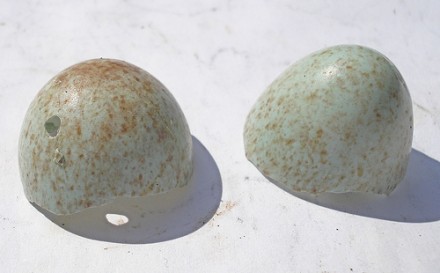Some of the animals known to lay eggs include birds like the ostrich, humming bird, eagle, the king fisher, reptiles like the crocodile, turtles, Iguana Lizard and other lizards, fishes like Siamese Fighters, Piranhas, and chichlids.
Most species of fish, amphibians, all birds, reptiles and most insects and arachnids lay eggs. In most reptiles and birds, fertilisation of the ovum is what produces the egg, which is the zygote. Animals that lay eggs, with very little or almost no other development within the mother, are called oviparous. Both reptile eggs and bird eggs laid outside water have a protective shell, either inflexible or flexible.
At 1.5 kilos the ostrich egg has the largest existing single cell known today, while weighing half a gram, the bee hummingbird lays the smallest known egg. Some reptiles and fishes lay eggs that are even smaller. Insects and invertebrates lay even tinier eggs. The platypus is the only known mammal that lays eggs.

